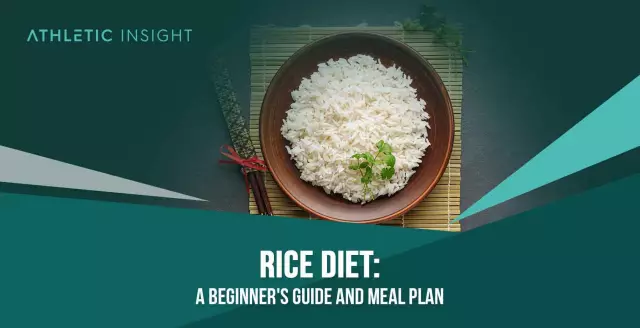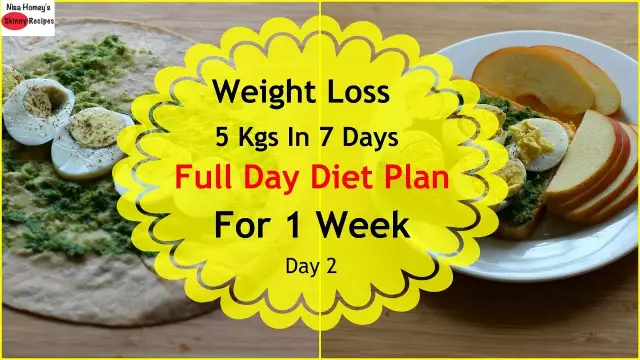- Author Rachel Wainwright wainwright@abchealthonline.com.
- Public 2023-12-15 07:39.
- Last modified 2025-11-02 20:14.
1000 calories

1000 calories - one of the varieties of strict weight loss diets, limiting the daily intake of calories in the body to 1000.
A little about calories
Calories are units of measure for the energy value of food. Calories measure its total nutritional value, along with metrics such as protein, fat and carbohydrate content.
Calories provide the necessary energy for various life processes, including physical and mental work. Energy is required for each of the many biochemical reactions in the body.
A person has a basic minimum calorie requirement during the day. Their energy value should ensure the course of all physiological processes in a state of maximum rest and relaxation (the so-called basal metabolism).
The energy requirement for basal metabolism is different for all people and depends on age and body surface area. An adult man, on average, needs 1,700 kcal per day to ensure basic metabolic processes, a woman - 1.5 times less.
In addition to metabolism and the work of internal organs, energy in the body is spent on mental and physical activity. With food, we can receive much more calories than is required to ensure basic metabolism. And if they are not completely spent, then they will be stored in reserve - in the form of glycogen in the liver and adipose tissue, and this is known to be fraught with the appearance of extra pounds.
With obesity, it is possible and necessary to limit the intake of calories into the body, and then the mechanisms for the expenditure of one's own fat reserves are activated. This allows you to fight excess weight.
1000 calorie diet options
The principles of the 1000 calorie diet were developed and formulated by nutritionist Anna Belousova. It would be more correct to call this diet 1000 kcal, since the calorie content of food is measured in kilocalories.
Limiting energy supply to 1000 calories per day is a very tough method of dealing with extra pounds. In order to sustain a 1000 calorie diet, a person must be in excellent health.
The 1000 calorie diet comes in two flavors. One of them allows the use of any food, including fatty, fried, sweet confectionery, but the amount of food in terms of energy value should not exceed 1000 calories per day.
The second option for the 1000 calorie menu describes the diet for weight loss in more detail. So, it must include:
- 300 g fresh fruit;
- 400 g of vegetables;
- 500 ml of milk;
- 160 g of lean meat;
- 40 g rye bread;
- 1 egg;
- 30 g of cottage cheese or 15 g of cheese (optional);
- 15 g butter.
Such a set will provide the body with only part of the energy, and the missing one will be replenished from fat reserves.
Approximate menu for 1000 calories per day

Of course, it is very difficult to calculate the calorie content of any food you eat at home. Therefore, nutritionists suggest using a more accurate second diet option and a ready-made menu for 1000 calories per day.
Breakfast:
- A glass of skim milk (200 ml);
- Soft-boiled egg;
- Grapefruit (100 g);
- A piece of rye bread (20 g);
- Butter (10 g).
Second breakfast - one of the following drinks:
- Tea;
- Coffee;
- Vegetable broth.
Dinner:
- Boiled vegetables (200 g);
- Low-fat meat (80 g);
- Green salad;
- Fresh fruits (100 g);
- Unsweetened tea (1000 ml).
Afternoon snack:
- Cottage cheese or cheese (5 g);
- Rye bread (20 g);
- Butter (5 g);
- Skimmed milk 30 ml.
Dinner:
- Vegetables (200 g);
- Fresh salad (200 g);
- Fruit (100 g);
- Lean meat (80 g);
- Tea or coffee (100 ml).
Reviews and expert opinions on the 1000 calorie diet
Nutritionists are very controversial about the 1,000 calorie diet. On the one hand, it allows you to get rid of 1.5 - 10 kg of excess weight in a fairly short time. But on the other hand, the diet on a 1000 calorie diet suffers, as it is limited not only in energy value and volume of food, but also in useful substances - proteins, dietary fiber, vitamins and minerals. A deficiency of some of them can immediately and seriously affect even a healthy body, as well as exacerbate chronic diseases.
For example, if on a diet of 1000 calories with food, a sufficient amount of magnesium and potassium salts ceases to flow, then difficulties in the work of the heart will begin, which is manifested by disturbances in the rhythm of heart contractions up to cardiac arrest and death.
At home, the 1000 calorie diet can only be followed up to 2 to 3 weeks. If you feel worse, the diet should be interrupted immediately and consult a doctor.
A significant disadvantage of the 1000 calorie diet is that after its completion, the original weight is gained in a short time. The body perceives a temporary nutritional deficiency as a constant threat to its well-being, therefore, when restoring a normal diet after a 1000 calorie diet, it begins to store all excess calories for future use.
Lack of protein in the menu for 1000 calories per day leads to the fact that skeletal muscle protein begins to be consumed for the most important metabolic processes. If the diet for 1000 days is delayed, then the heart muscle is also involved in this process, which can provoke the development of myocardial dystrophy.
If you observe the restriction of calories in the diet of the menu of 1000 calories per day for a long time, then from the lack of important nutrients, uncontrollable weakness often appears, immune defense, physical and mental strength decrease, and metabolic disruptions occur.
Over time, health problems such as diarrhea, nausea, hair loss, menstrual irregularities, gallstones, and poor cold tolerance will add to the negative effects of a 1,000-calorie menu.
Found a mistake in the text? Select it and press Ctrl + Enter.






